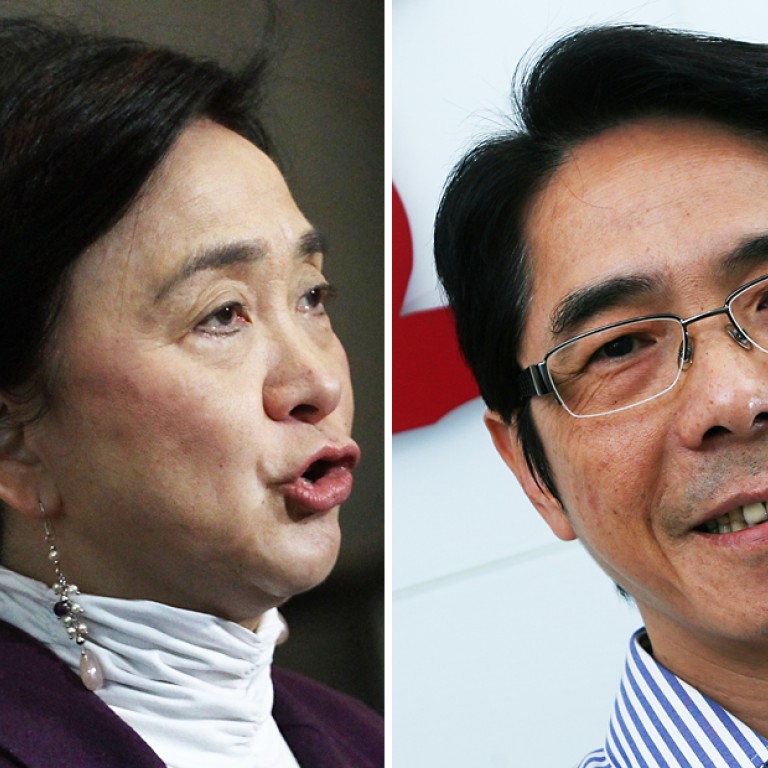
Unpatriotic chief executive 'could pose a threat to sovereignty'
Allowing an "unpatriotic" leader to govern Hong Kong would push "one country, two systems" in the wrong direction and could even harm the country's sovereignty, the white paper said.
The stern warning came as pan-democrats make a last-ditch effort to mobilise Hongkongers to take part in Occupy Central's referendum next week on how the city's next leader should be elected in 2017.
While reiterating the central government's "solemn commitment" to supporting the city's move towards universal suffrage in a gradual and orderly manner, the paper warned against letting an unpatriotic chief executive take the helm - a move one lawmaker said was intended to bar pan-democrats from entering the race.
"If … they cannot be loyal to the country and the HKSAR, the practice of 'one country, two systems' in the HKSAR will deviate from its right direction, making it difficult to uphold the country's sovereignty, security and development interests and putting Hong Kong's stability and prosperity and the well-being of its people in serious jeopardy," the paper said. It added that requiring the city's chief to be patriotic was "well grounded in laws".
In its conclusion, the white paper also warned foreign countries not to meddle in China's internal affairs via the city.
"It is necessary to … prevent and repel the attempt made by a very small number of people who act in collusion with outside forces to interfere with the implementation of 'one country, two systems' in Hong Kong," it said.
Pro-Beijing lawmaker Wong Kwok-kin, of the Federation of Trade Unions, said the white paper implied that Beijing would maintain a firm stance on reform negotiations.
"Escalating the debate to the state level - even on the country's sovereignty - means that there is not much room for Beijing to compromise over reform," the former National People's Congress delegate said.
A call by pan-democratic lawmakers for the public to nominate chief executive hopefuls was definitely off the negotiating table, he said, and it was equally unlikely that a pan-democrat could enter the race.
Wong also believed that the white paper - which was published by the State Council's Information Office instead of its Hong Kong and Macau Affairs Office - was targeted not only at Hongkongers but also foreign countries. "They hope these countries will stop interfering in the city's affairs, particularly on reform," he said.
Democratic Party leader Emily Lau Wai-hing said she was now more pessimistic about Hong Kong's progress towards democracy.
She added that Beijing should not exert any unreasonable constraints on chief executive candidates and "patriotic" was a criteria that was hard to define.
"I have never seen anybody saying they do not love the country or Hong Kong," she said.
Despite the white paper's warning, the British consulate reiterated that the country's commitment to Hong Kong remained "as strong as ever".
The consulate added that universal suffrage was the best way to preserve Hong Kong's strengths.

